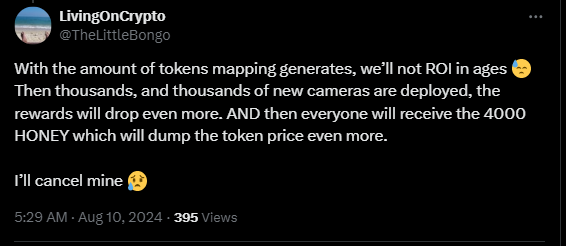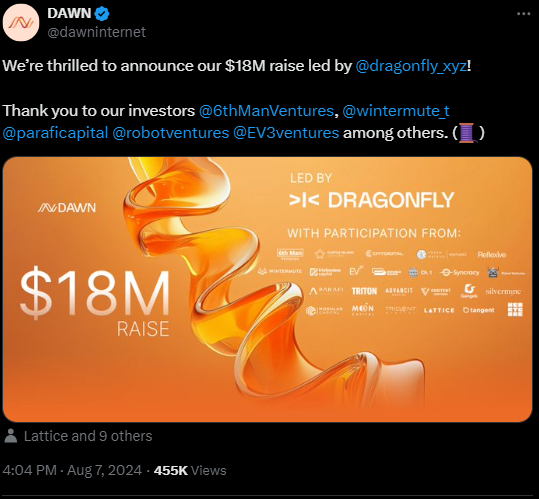Decentralized Physical Infrastructure Networks (DePin) are transforming the technology landscape by bringing projects from online to the real world. In this article, we’ll tell you what happened in the DePin sector over the past few days, including Hivemapper introduction of its latest Bee device, REI partnership with Stratos for decentralized storage solutions, and Andrena, which secured $18M to advance the DAWN broadband protocol.
Hivemapper Shifts Strategy in the DePin Sector
The Hivemapper project has introduced a new product that will significantly improve the Bee dashcam or windshield mount. This update has forced Andrena to discontinue the HDC dashcam. Customers who pre-ordered the HDC will automatically receive the upgrade to Bee or will be able to request a refund.
The Bee device is currently undergoing mass testing in Northern California and Pittsburgh, and is being prepared for mass production. The design of the device has been optimized for increased production volumes, and new distributors are ready to speed up delivery, especially in Southeast Asia.
As Bee prepares to go to market, Hivemapper advances its mission to create a global network of street imagery.
However, not all Hivemapper users are happy with the update. They are wary that the tokens they earn from mapping will not bring them any immediate profit. They are also afraid that with the addition of thousands of new cameras, the rewards will drop even further.

“With the amount of tokens we earn from mapping, we won’t see ROI anytime soon. Then thousands and thousands of new cameras will be installed and the rewards will drop even more. And then everyone will get 4,000 HONEY, which will further collapse the token price,” complained one user on social network X.
REI Network Embeds Stratos Storage Solutions
REI has announced a partnership with Stratos to help it leverage its blockchain framework with advanced decentralized storage solutions. Stratos is developing a next-generation decentralized cloud storage platform that integrates scalable storage, databases, and compute on a single network.

The project uses a unique Proof-of-Traffic consensus mechanism that rewards network participants based on the traffic they generate. This approach enables a self-balancing network that can meet the needs of a new era of decentralization.
Stratos’ scalable storage solutions can handle a wide range of applications and growing volumes of data. Their decentralized infrastructure ensures secure data storage, minimizing the risk of loss or unauthorized access. Additionally, Stratos’ design improves the efficiency of decentralized applications and services within the REI Network.
Andrena received $18 million for development
Wireless internet provider Andrena has raised $18 million in a Series A round, bringing its total funding to $38 million. Dragonfly Capital, CMT Digital, Castle Island Ventures, Wintermute Ventures, 6th Man Ventures, and ParaFi participated in the round.
Andrena plans to use the money to develop DAWN, a broadband protocol that allows unused bandwidth to be sold. DAWN is based on a system of decentralized physical infrastructure networks (DePIN), where rooftop wireless base stations form an Internet access network independent of a centralized provider. “Our mission is to transform the internet from a provider-controlled model to a user-controlled model. Homes can own their solar panels and sell excess power back to the grid, and DAWN aims to do the same for the internet,” the team shared on X.

Andrena, which operates in 10 states including New York and New Jersey, plans to migrate existing customers to the DAWN protocol. DAWN is currently being tested on the Solana blockchain in the testnet phase, and an exact date for the full launch has not yet been announced. Once launched, Andrena aims to reach over 3 million households and continue its global expansion.
While DePIN networks are still in their early stages and have some shortcomings, they enable the exchange of tokens between synthetic and real assets, supporting traditional infrastructure and providing access in areas where traditional models are not economically feasible.












